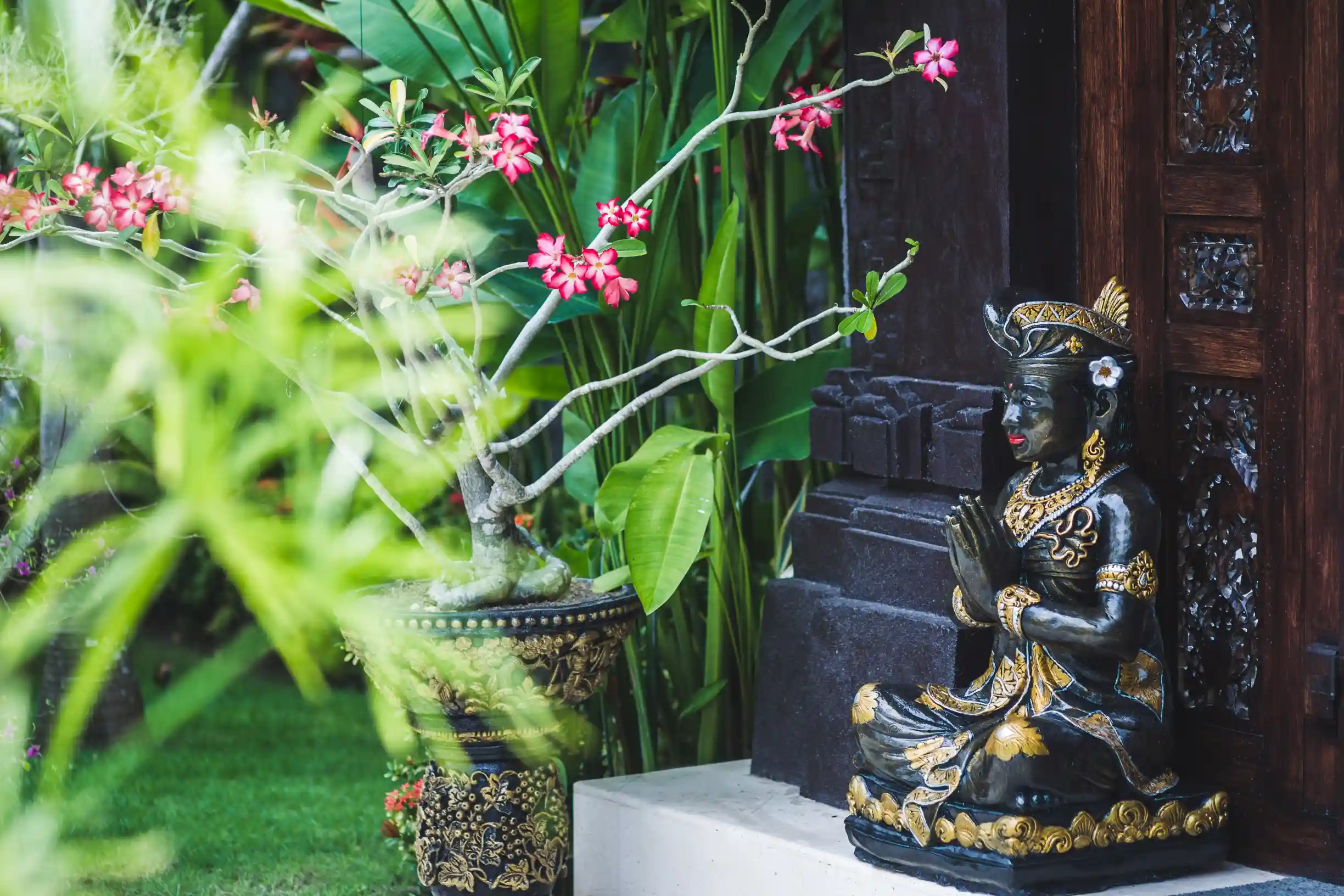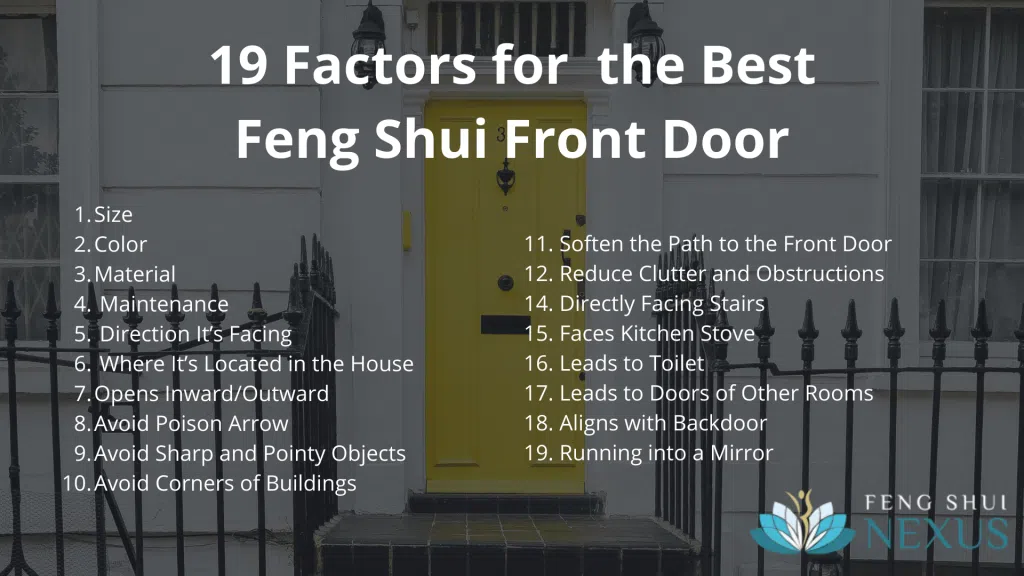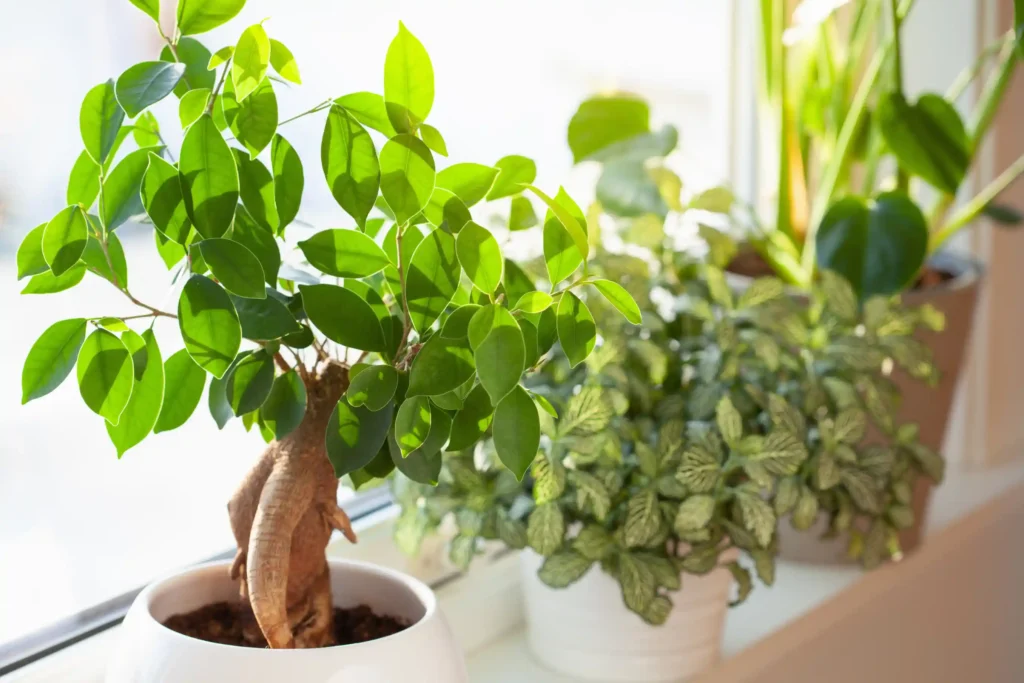
Your front door isn’t just an entry point; in Feng Shui, it’s the “mouth of Chi” – the primary gateway for energy to enter your home and influence your life. As an experienced practitioner of Feng Shui and a passionate gardener, I’ve seen firsthand how thoughtfully placed plants can dramatically shift the energy of an entryway, inviting prosperity, protection, and positive vibes. Choosing the right plants and understanding their symbolic significance can transform a simple doorway into a powerful energetic beacon.
Far beyond just aesthetics, these auspicious green companions act as living energy filters, enhancing the flow of beneficial chi while deflecting negative influences. From vibrant blossoms to sturdy evergreens, each plant carries unique symbolism that can contribute to your home’s overall harmony and well-being. Let’s explore how to select the perfect Feng shui plants to create a welcoming and energetically balanced entrance.
Key Takeaways
- Understand the “Mouth of Chi” concept to optimize your front door’s energy flow.
- Strategically place plants based on Feng Shui directions and the Five Elements Theory for maximum benefit.
- Discover 15 specific plants known for their positive energy, protection, and prosperity symbolism.
- Learn essential outdoor container gardening tips to keep your Feng Shui plants thriving.
Understanding Feng Shui at Your Entryway
:max_bytes(150000):strip_icc()/SPR-good-and-bad-feng-shui-plants-1274740-b2c2a3006a7042cdbd44ddb6bc5e8705.jpg)
Image credit: www.thespruce.com
In Feng Shui, the front door is paramount. It’s where opportunities, wealth, and beneficial Chi energy flow into your life and home. A well-cared-for and energetically balanced entryway sets the tone for everything that happens inside. Conversely, a neglected or chaotic entrance can block positive energy, leading to stagnation.
My own journey into Feng Shui began with a rather bland front porch. The moment I started applying these principles, I noticed a palpable shift – not just in the aesthetic appeal, but in the welcoming atmosphere visitors felt, and frankly, in my own sense of well-being as I came and went. The goal is to create an inviting, vibrant space that actively draws in good fortune.
The Fundamentals of Location: Feng Shui Guidance and Defence

Image credit: fengshuinexus.com
Strategic placement is key when selecting Feng shui plants for your front door. Beyond just picking attractive plants, consider their interaction with the Five Elements Theory (Wood, Fire, Earth, Metal, Water) and the specific Feng Shui directions. Each direction is associated with certain elements and aspirations.
For example, a front door facing East or Southeast (Wood element) benefits from tall, lush plants. A North-facing door (Water element) thrives with undulating, soft-edged plants. Understanding these nuances helps to amplify the positive Chi energy flow. Plants can also act as powerful protection plants, deflecting negative energy deflection before it enters your home. Positioning a plant slightly to the left (dragon side) of your door can symbolize protection, while placing one on the right (tiger side) can invite nurturing energy.
15 Excellent Plants for Enhancing the Feng Shui of Your Entrance Door
Here are 15 exceptional plants, perfect for outdoor container gardening, that bring specific beneficial energies to your entryway. I’ve personally experimented with many of these, and the results are consistently positive.
Lucky Bamboo (Dracaena sanderiana): While often an indoor plant, larger arrangements can thrive in sheltered outdoor spots. Lucky Bamboo symbolizes prosperity, growth, and good fortune, especially when arranged in specific numbers (e.g., three stalks for happiness, five for wealth). Its upward growth encourages rising positive energy.
Jade Plant (Crassula ovata): Known as the “Money Plant” or “Friendship Tree,” the Jade Plant is a classic Feng Shui plant. Its thick, coin-shaped leaves are potent symbols of wealth and abundance. It’s hardy and relatively easy to care for, making it ideal for a welcoming, prosperous entrance.
Money Tree (Pachira aquatica): Another direct symbol of prosperity, the Money Tree is often braided, representing interconnectedness and stability. It’s believed to trap wealth within its trunk. For those in warmer climates, it can be a stunning outdoor focal point.
Snake Plant (Sansevieria trifasciata): Don’t let the name mislead you. The Snake Plant is a formidable protection plant. Its upright, sword-like leaves are believed to cut through negative energy and provide strong protection. It’s incredibly low-maintenance, perfect for busy individuals seeking powerful energetic guardians.
Peace Lily (Spathiphyllum): With its elegant white blooms and dark green leaves, the Peace Lily promotes peace, harmony, and purification. It’s excellent for balancing energy and softening harsh angles, creating a serene and inviting atmosphere.
Citrus Trees (e.g., Kumquat, Lemon, Orange): If your climate allows for it (or if you can move them indoors during winter), small citrus trees are incredibly auspicious. Their vibrant fruits symbolize abundance, good fortune, and wealth. The scent is also incredibly uplifting.
Orchids (Phalaenopsis or Dendrobium): While delicate, a beautiful potted orchid placed in a sheltered spot can symbolize beauty, fertility, and abundance. They are particularly effective for South-facing doors, representing fire and passion, but should be brought indoors during cold weather.
Chrysanthemums: These cheerful flowers symbolize optimism, joy, and longevity. They bring bright, positive energy and are particularly beneficial for entrances that need a boost of vibrant chi, especially during autumn months.
Rosemary (Rosmarinus officinalis): A potent herb, Rosemary is known for protection, purification, and memory enhancement. Placing it by your front door can ward off negative energy and bring clarity and good health to your home.
Boston Fern (Nephrolepis exaltata): With its lush, feathery fronds, the Boston Fern is excellent for softening harsh lines and introducing gentle, flowing energy. It symbolizes growth and abundance, creating a sense of welcome and natural beauty.
Aloe Vera: A well-known healing plant, Aloe Vera is also considered a powerful protection plant in Feng Shui. It’s believed to deflect bad luck and negative influences, while its succulent nature speaks of resilience and endurance.
Ficus (e.g., Rubber Plant, Ficus lyrata): Larger Ficus varieties, especially the Rubber Plant, represent stability, abundance, and growth. Their round, broad leaves attract positive energy and provide a sense of groundedness at your entrance.
Palm Trees (e.g., Areca Palm, Parlor Palm): Small, well-maintained palms introduce soft, gentle energy and a sense of calm. They can diffuse sharp angles and bring a touch of natural tranquility, symbolizing adaptability and steady growth. Just ensure they don’t block the entryway.
Dwarf Conifers/Boxwood: For year-round greenery and structure, small evergreen shrubs like dwarf conifers or boxwood are excellent. They symbolize longevity, resilience, and consistent positive energy. Their unchanging nature provides a strong, stable foundation for your home’s chi.
Lavender (Lavandula): Beyond its soothing fragrance, Lavender is known for its calming properties and ability to purify energy. Placing it near your door can promote peace, reduce stress, and invite serene chi into your home.
Growing wealth and safety with the plants you choose

Selecting the right plants is only half the battle; maintaining them is equally crucial for good Feng Shui. A wilting or diseased plant can actually attract negative energy. From my experience in outdoor container gardening, the health of your plants directly reflects the vitality they bring to your space.
- Regular Care: Ensure your plants receive adequate water, sunlight, and nutrients. Deadhead spent flowers and prune any yellowing or decaying leaves. A healthy plant radiates strong, positive chi.
- Appropriate Containers: Choose pots that complement your home’s style and the plant’s size. Avoid cracked or broken pots, as these symbolize neglect and broken energy.
- Clutter-Free Zone: Keep the area around your plants and the entire entryway free of clutter. This allows for unobstructed Chi energy flow.
- Balance: Aim for a balanced arrangement. Two symmetrical plants on either side of the door can create a strong, welcoming energy. Ensure plants don’t block the pathway or the door’s opening.
For more specific plant care advice, I often refer to reputable sources like university extension services or botanical garden guides, as they provide region-specific and scientifically sound information. For example, understanding the light and water needs of succulents can make all the difference in their health and vitality. Wikipedia’s entry on Feng Shui provides a good general overview for further reading on its principles.
By thoughtfully choosing and caring for the best plants to put in front of your door, you are actively participating in creating a harmonious and prosperous environment. These Feng shui plants aren’t just decor; they are active agents in shaping the energy that defines your home and life.
Frequently Asked Questions
Q: Can any plant be a good Feng Shui plant for my front door?
A: While all plants bring some form of life energy, specific plants are traditionally associated with auspicious symbolism in Feng Shui. It’s best to choose plants known for positive attributes like prosperity, protection, or purification to maximize their beneficial impact.
Q: How many plants should I put by my front door?
A: An odd number of plants (1, 3, 5) is generally considered more auspicious in Feng Shui, especially for smaller groupings. However, two symmetrical plants on either side of the door are also excellent for balance and inviting energy. The key is to avoid overcrowding and ensure the area remains clear and welcoming.
Q: What if I don’t have a lot of space for outdoor container gardening by my door?
A: Even a small space can benefit! Consider using a single, well-chosen plant like a Snake Plant or a small Jade Plant in an elegant pot. Vertical gardening solutions or hanging baskets can also be utilized, provided they don’t obstruct the entryway.
Q: Are there any plants I should avoid putting in front of my door?
A: Generally, avoid thorny plants (like cacti) directly at the entrance, as they can represent sharp energy or obstacles. Also, unhealthy, dying, or artificial plants are not recommended, as they symbolize stagnation or lack of vitality. Focus on vibrant, living plants that inspire growth and positivity.
Q: How do I know which Feng Shui direction my front door faces?
A: Use a compass to determine the direction your door faces when standing just inside your home, looking out. Knowing this direction can help you align your plant choices with the corresponding element and energy. For detailed information on specific element associations, a good resource for understanding the Five Elements Theory in Feng Shui can be very helpful.




Leave a Reply